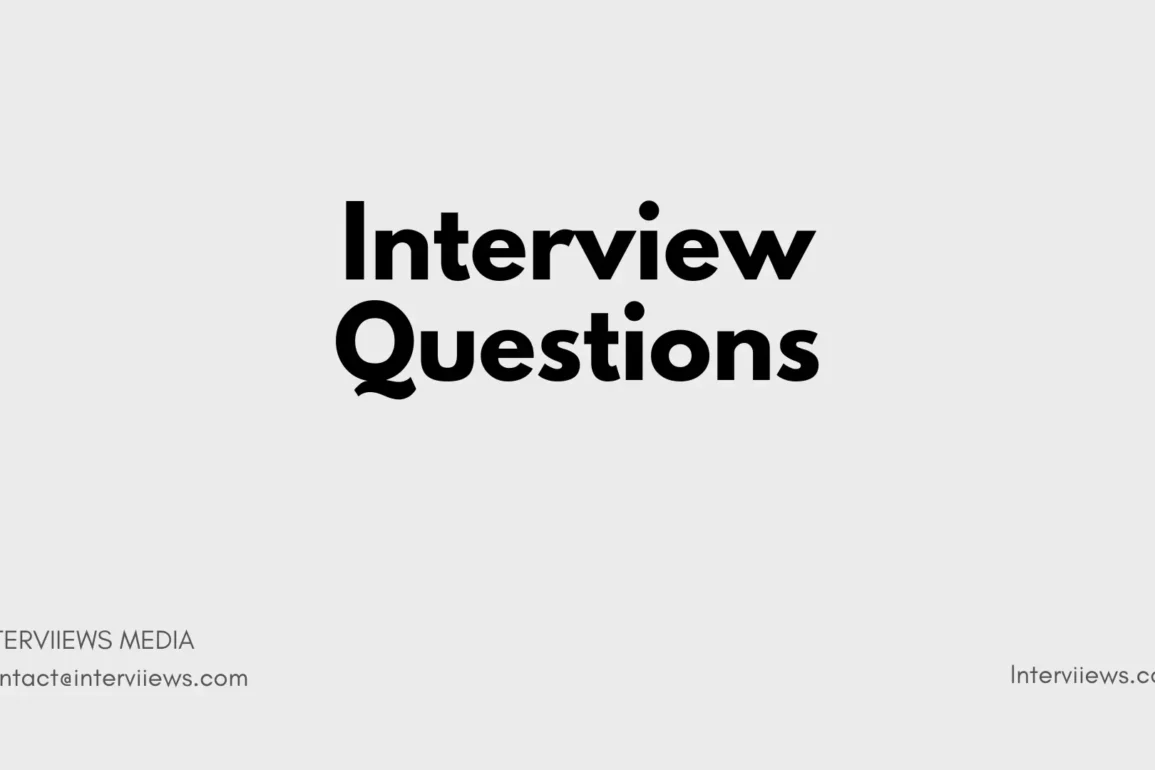Preparing for an interview can be a daunting task, especially when it comes to understanding the various types of questions that interviewers may ask! Did you know that 70% of employers use behavioral questions to assess potential candidates’ cultural fit? In this informative guide, we will explore the different categories of interview questions, helping both job seekers and hiring managers navigate the complexities of the interview process. By understanding these categories, you can not only anticipate questions but also refine your answers, making a lasting impression!
Introduction to Interview Questions Categories
You know, the world of interviews can feel like walking on a tightrope while juggling flaming torches—more than a little nerve-wracking, right? I mean, I’ve been there; sitting in that uncomfortable chair, palms sweating, trying to remember the behavior I promised myself I would harness. A huge piece of the puzzle to ease those jitters is understanding the different categories of interview questions. This not only helps candidates prepare but also allows interviewers to dig a little deeper into their potential hires.
- Why understanding question categories matters: Knowing the type of questions being asked can shift your thinking from “OMG, what do I say?” to “Aha, I got this!” This clarity really shapes how one approaches answers.
- Common types of interview questions: There are commonly seen ones like behavioral, situational, open-ended, accomplishment, and opinions. You name it; they’re probably out there waiting to pop up during interviews.
- Tailoring responses: Each category requires a different strategy. What works for an open-ended question might not hit the mark for a situational one. Getting tailored in your response is key!
Types of Interview Questions
Let me tell you, I’ve flubbed my share of interviews, and knowing the types of questions ahead of time has saved my skin more than once. For instance, when I first started interviewing, I panicked at my first open-ended question: “Tell me about yourself.” I blanked. If only I had prepped accordingly, I would’ve known to kick it off with my relevant experiences and mix in a little personal flair. Easy peasy, right?
- Open-ended questions: These are like a canvas—“Paint me a picture!” An example could be, “Describe your work style.”
- Behavioral questions: Think of them as your past guiding experience. An example is, “Have you ever faced a conflict at work? How did you handle it?” Yikes, that one made my knees weak when I first heard it!
- Situational questions: These are hypothetical and often get you thinking, “What would you do if…?” It forces you to showcase your problem-solving skills—like, “How would you manage an underperforming team member?”
- Accomplishment questions: Here, you get to shine! They’ll ask, “Can you tell me about a project you’re proud of?” Boom, time to boast about your awesomeness!
- Opinion questions: These might catch you off guard, like “What’s your take on remote work?” Honestly, that one had me feeling like I was on a roller coaster without a safety bar!
Why It Matters
So, why does all this matter? Well, understanding these question categories makes you a pro at interviews. You learn to respond adequately and think on your feet, which ultimately helps land that dream job. I once missed a perfect opportunity because I wasn’t ready to answer a situational question properly, and let me tell you—it stung. But now? Now I prepare for those curveballs and shine like the star I know I am.
Whether you’re on the hiring side or the seeking side, knowing how to navigate these questions can add a little life to the interview. And hey, it can mean the difference between a “thank you for your time” email or the excitement of a job offer. Who wouldn’t want that?
Behavioral Questions
Okay, so let’s talk about behavioral interview questions. You might be wondering, what’s the deal with these? Well, these types of questions are a pretty big deal in job interviews. They usually go like this: “Tell me about a time when…” or “Can you give me an example of…” Essentially, interviewers are trying to dig into your past experiences to see how you’ve handled stuff before. They believe your past behavior is the best predictor of your future behavior in similar situations. Crazy, right? But it totally makes sense.
- What’s the purpose? To see how you react under pressure, deal with conflict, or just get the job done. It gives the interviewer a peek into your personality and work ethic.
For example, common behavioral questions you might come across include:
- “Describe a time you made a mistake. What happened?”
- “Tell me about a situation where you had to work as part of a team.”
- “Can you think of a time when you had to handle multiple tasks at once?”
Now, the challenge is, when you’re in the hot seat, thinking of these past experiences can feel like pulling teeth. So here’s a tip: get comfy with the STAR method! It’s an acronym, and trust me, it works wonders. STAR stands for:
- Situation: Give some context about the scenario.
- Task: Explain your role in that situation.
- Action: What steps did you take to address the task? This is where you shine!
- Result: Share what the outcome was. Did you save the day? Get praise? Bowl people over?
Using STAR can really help structure your responses so they flow nicely. I remember when I stumbled over a question about conflict resolution; I was a deer in headlights. But after I embraced the STAR approach, I felt a lot more put together. Showcasing the full picture really made a difference!
Practice Makes Perfect
As you gear up for interviews, practice these questions with a buddy or even in front of the bathroom mirror (hey, it works!). You’d be amazed how many stories you already have that’ll impress the pants off your interviewer.
Phew! Does that kinda take the edge off behavioral questions for you? You got this!
Situational Questions
Alright folks, situational interview questions are kinda like a peek into your problem-solving bag. They ask you to imagine how you’d handle certain scenarios, especially those you might face in a job. Unlike behavioral questions that look for past experiences, situational questions present hypothetical situations. You’re being assessed on your approach to problems before they happen. It’s kind of like when you have to play detective and figure out the best course of action based on limited information.
So here’s the scoop. While behavioral questions ask, “Tell me about a time you did X,” situational ones might turn around and ask, “What would you do if you were faced with X?” For example, a hiring manager might say: “What would you do if you had a team member not pulling their weight?” This is your time to shine and showcase those soft skills they’re so keen on, like teamwork, leadership, or even conflict resolution.
Sample Situational Questions:
- What would you do if you made a mistake, and no one noticed?
- Imagine you have two conflicting deadlines. How would you handle that?
- What would you do if a client confronted you in anger about a service issue?
- How would you deal with a team member who is frequently late to meetings?
These guys usually pop up in interviews for customer service, project management, and even teaching roles! They’re all about how you think on your feet. Knowing when and where to apply your responses is crucial.
Tips for Formulating Responses
When it comes to tackling situational questions, you really want to put your best foot forward. Here are some trusty strategies that have helped me in the past, and they can help you too!
- Use the STAR Method: Yup, this one’s a classic. Situation, Task, Action, Result. Frame your responses with this, and it gives your answer structure and clarity.
- Think Aloud: Sometimes it’s about showing your thought process. Let them into your brain! Explain why you’d choose a particular solution; it shows critical thinking, folks!
- Stay Positive: Even if the scenario presented is a bummer, like dealing with an angry client, focus on the constructive steps you would take. Nobody wants to hear you moan about a situation; bring that can-do attitude.
- Practice: Seriously, rehearse with a friend or in front of the mirror. The more comfortable you are with your responses, the less it feels like you’re just making stuff up on the spot.
So, one quick tidbit I learned along the way: if you don’t have experience, that’s okay! Get creative. Think through similar scenarios that you have encountered and draw parallels. Sometimes it’s not about the specifics but how you make the connections.
Technical Questions
Technical interview questions can be a real rollercoaster ride, especially for those new to the tech field or who haven’t prepped for one before. They’re often tailored to the specific job you’re applying for, whether it’s software engineering, systems analysis, or network architecture. Think of these questions as a way for employers to gauge your knowledge, problem-solving skills, and practical expertise. It’s all about seeing if you can walk the talk!
So, here’s a little gem from my past. I remember walking into my first tech interview, heart racing, and the interviewer hit me with this question: “Can you explain how a hash table works?” Mind you, I had only lightly skimmed through the concepts the night before. I fumbled through my explanation, trying to remember what I had learned.
Spoiler alert: it didn’t go well. A few weeks later, after some serious studying, I nailed that question in an interview with another company. I learned the key here is practice and preparation.
- Here, let’s break down a couple of typical questions you might face:
- For Software Engineers: “How would you optimize an algorithm?” This isn’t just about knowing algorithms; it’s about showcasing your analytical thinking.
- For Systems Administrators: “What would you do if a server goes down?” Interviewers want to see your troubleshooting process; it’s about the journey you take to find a solution!
- Before heading into your interview, there are some solid strategies I picked up:
- Know the Job Description: Seriously, pay attention to the skills listed. If they’re looking for Python proficiency, you better brush up on your Python basics and be prepared for a coding challenge.
- Practice with Real Examples: It’s one thing to know the concepts, but can you apply them? Use platforms like LeetCode or HackerRank to run through practice problems.
- Talk it Out: Explain your thought process out loud as you’re coding or solving a problem. It’s like having your own mini-interview in your living room!
- Take a Breath: If a question stumps you, don’t hesitate to ask for a moment. Getting a bit of time can really help you think clearly and articulate better. And don’t be afraid to ask clarifying questions; it shows you’re engaged.
- Ultimately, an interview isn’t just about being the smartest in the room; it’s about demonstrating how you think and solve problems under pressure.
Competency Questions
Alright, let’s kick off by defining what competency-based interview questions really are. So, these are the type of questions designed to see how your past experiences relate to the skills needed for the job you’re applying for. It’s all about finding out if you have what it takes by asking about specific scenarios you’ve been in before.
The significance of these questions can’t be overstated! They’re like the key that unlocks the door to your potential employer’s understanding of how you might perform in a similar situation down the line. Trust me; you want them to think you’re the rock star of your professional gig!
- Now, common competency questions can cover quite a bit of ground. Here are a few areas you might encounter:
- Teamwork: “Can you tell me about a time when you had to work with a difficult team member?” – I once had a teammate who just wouldn’t pull their weight, and boy, did I learn how to communicate effectively.
- Problem-solving: “Describe a challenging problem you faced and how you approached it.” – I remember getting stuck with a project deadline looming. My brain did a little gymnastics, but I managed to come up with a solution!
- Leadership: “Give me an example of a leadership role you took on.” – In college, I led a group project, and let me tell you, it was a rollercoaster ride of organization. We pulled it off, though, and that felt awesome!
- When it comes to demonstrating your competencies in an interview, there are a few tricks of the trade I’d recommend. First off, remembering the STAR Method – that’s Situation, Task, Action, and Result. Seriously, it’s your best friend. Using this method gives a nice structure to your answers and helps you paint a clear picture for the interviewer.
Here’s a little tip: prep some examples ahead of time! I learned this the hard way during an interview when I blanked on a great story. Having a couple of pre-prepared anecdotes really makes it simpler to adapt on the spot.
And remember to be honest; sometimes humor can lighten up the moment, making it memorable! Lastly, don’t forget to breathe and be yourself. They want you to shine, so let your personality come through. Interviewing is as much about fit for you as it is for them!
Tips for Answering Different Categories of Questions
So, you’ve got an interview lined up? Oh boy, the excitement mixed with a pinch of panic! I totally get it. Back in the day, I remember my first job interview like it was yesterday. I completely blanked out on the question about my strengths and weaknesses. Lesson learned: preparation is key! Let’s break down some insightful strategies for tackling different interview styles.
Understanding Interview Styles
- Behavioral Questions: These questions often start with “Tell me about a time when…” and are designed to understand how you’ve handled situations in the past. My go-to trick? The STAR method: Situation, Task, Action, Result. It really helps you structure your answer effectively.
- Situational Questions: These ask how you’d handle hypothetical scenarios. A little tip: always relate your answer back to the company values or the job role. It shows you’re a fit.
- Technical Questions: If you’re in a field like finance or IT, expect a few curveballs. Brush up on your basics and make sure you can explain your thought process clearly. I once stumbled on a technical detail and just had to mumble through. Cringe-worthy moment!
Common Mistakes to Avoid
- Don’t ramble. Keep your answers concise and to the point. Less can be more!
- Avoid generic answers. Honestly, who hasn’t heard “I work well in a team”? Personalize your responses. It makes a lasting impact!
- Showing up unprepared — yep, I did that once too and it was a disaster! Research the company thoroughly, their culture, recent news, and the role you’re applying for.
Resources for Effective Interview Preparation
When I was preparing for interviews, I used so many resources that it felt like I was cramming for finals! Here’s what worked:
- Mock Interviews: Practice makes perfect. Grab a friend or family member and do practice runs. Trust me, it’s less scary with someone familiar.
- Online Tools: Websites like Glassdoor and Indeed are goldmines for common questions you might face, plus you get to read about other candidates’ experiences. Kinda makes you feel like you’re not alone!
- Books: I picked up a few career-focused books that offered tons of tips. “Cracking the Coding Interview” for tech folks is a classic.
Remember, interviews are two-way streets. It’s as much about you figuring out if they’re a good fit for you too. Cheers to nailing that interview!
Conclusion
In summary, understanding the various categories of interview questions is vital for both candidates and interviewers alike! By familiarizing yourself with behavioral, situational, technical, and competency questions, you can enhance your confidence and improve your performance during interviews.
Don’t miss out! Download our INTERVIIEWS free PDF guide on interview questions categories and gear up for your next interview with confidence!





